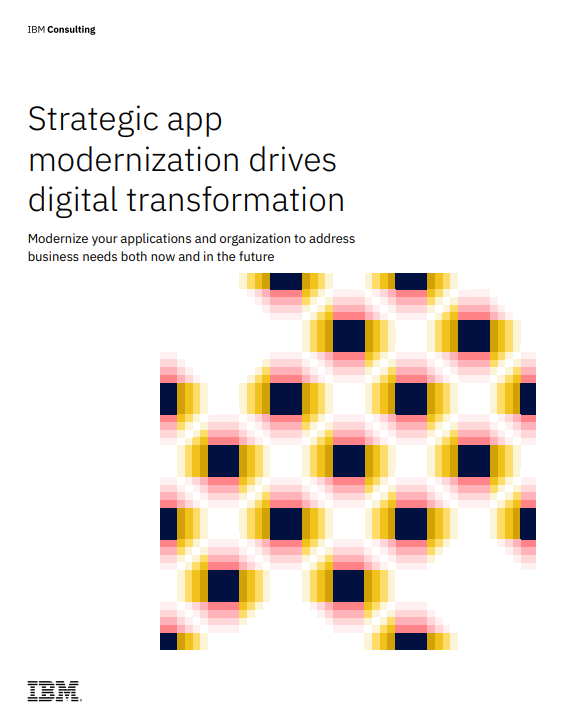English public sector IT spending soars while small cohort of vendors dominate market
Spending has more than doubled since 2018 while a comparatively small group of providers collect 89% of the contracts on offer


With English public sector IT spending continuing to rise, concerns have been raised about the potential of government bodies relying on a select number of vendors.
Recent research from Tussell shows that the share of public sector spending on IT reached £173 billion last year – a 10% rise compared to 2021's figures.
This increase, the report found, means that public sector IT spending has more than doubled in the last five years.
Much of this growth can be attributed to increased spending on IT infrastructure and capabilities during the pandemic. Similarly, IT expenditures increased despite a decline of 4% in overall government spending.
“2022 was a politically and economically turbulent year, in the UK and beyond,” Tussell said in its report. “Despite - or because of - these pressures, public procurement was resilient.”
“In England, the government continued purchasing at record levels, and market opportunities for suppliers remained plentiful.”
Large Vendor reliance
However, while IT spending continues to surge, previous research from Tussell shows that public sector bodies are relying heavily on a comparatively small selection of major IT providers.
Sign up today and you will receive a free copy of our Future Focus 2025 report - the leading guidance on AI, cybersecurity and other IT challenges as per 700+ senior executives
The 2022 ‘Tech Titans’ report found that public sector organisations increased IT spending from £11.5 billion to £12.6 billion between 2020 and 2021 – and 89% of funding was split among the biggest 150 IT providers.
The remaining market of around £1.5 billion was split among 5,298 other IT suppliers, Tussell said.
Atos, Capita, Computacenter, Capgemini, and BT were all highlighted as the top core vendors preferred by public sector organisations.
As this trend is expected to continue, Tussell suggested at the time that “£9 in every £10 spent on IT in the public sector will go to one of these 150 companies”.
“Tech Titans dominate the market,” Tussell said. “But they are competing strongly with one another; since 2018, only one company - Capita - has maintained the same position in our ranking.”
Martin Wilson, CEO at OneID, said that public sector bodies should acknowledge the value and agility that smaller SMEs and IT providers can offer.
“The government needs to get more creative than just outsourcing projects to large consulting firms and paying extortionate fees in the process,” he said.
Alex Fishlock, CEO at Catapult.cx said that public sector IT tenders can prove highly inhibitive to smaller suppliers and can, in some instances, fail to deliver true value for organisations.
“Public sector bodies are issuing tenders that are small in value, believing that small software engineering projects delivered for small amounts of money end up with a lower overall cost of an IT department,” he said.
“Small tenders still cost money for the vendors to bid for and win; this cost inhibits smaller vendors from bidding, since the amount of effort to win the bid is disproportionately high against its small value.
“This means that smaller vendors are typically unwilling to take on loss-leading tenders to gain a new customer.”
In addition, current tender frameworks which often benefit larger vendors can result in poorer outcomes for digital transformation projects.
RELATED RESOURCE

Strategic app modernisation drives digital transformation
Address business needs both now and in the future
“Multiple projects delivered by multiple vendors builds system and features silos, with little opportunity for reuse and cross-system collaboration. The cost of supporting disparate systems from multiple vendors becomes inefficient as the number of systems scales,” he said.
“Public sector bodies are doing less and less direct award of contracts, so even where a known vendor is preferred, the tender process is usually chosen to ‘box tick’. This risks existing vendors being unwilling to tender again; since the process of tendering is so expensive," Fishlock added.
"The result is a constant vendor churn through repeated tenders. Since a tender favours larger vendors, over time all the small vendors lose business to the larger vendors.”
Smaller vendors are making in-roads
Although larger vendors do account for a significant portion of public sector IT contract awards, Tussell revealed that smaller IT providers and newcomers are making inroads, especially in healthcare.
Among these was data analytics firm Palantir. The US-based firm has secured a number of sizeable contracts with government agencies and public health bodies over the last two years.
Palantir’s Foundry platform, for example, has been used by the NHS to make better use of organisational data. Meanwhile, the company’s software has also been introduced at NHS trusts across England to reduce patient backlogs.
Tussell added that, increasingly, larger providers are also seeking to collaborate with smaller organisations to maximise impact and improve the value of public sector IT contract bids.
“14 out of the 150 Tech Titans are SMEs (9% of the total), but many of the big companies want to partner with SMEs either to leverage best-of-breed solutions or to enhance the social value of their bids,” the firm said in its report.

Ross Kelly is ITPro's News & Analysis Editor, responsible for leading the brand's news output and in-depth reporting on the latest stories from across the business technology landscape. Ross was previously a Staff Writer, during which time he developed a keen interest in cyber security, business leadership, and emerging technologies.
He graduated from Edinburgh Napier University in 2016 with a BA (Hons) in Journalism, and joined ITPro in 2022 after four years working in technology conference research.
For news pitches, you can contact Ross at ross.kelly@futurenet.com, or on Twitter and LinkedIn.
-
 Will autonomous robotics leap forward in 2026?
Will autonomous robotics leap forward in 2026?In-depth Connectivity and cost benefits remain barriers, despite breakthroughs in physical AI
-
 AWS and NTT Data team up to drive legacy IT modernization in Europe
AWS and NTT Data team up to drive legacy IT modernization in EuropeNews Partnership between AWS and NTT DATA aims to boost AWS European Sovereign Cloud capabilities
-
 Global IT spending set to hit a 30-year high by end of 2025
Global IT spending set to hit a 30-year high by end of 2025News Spending on hardware, software and IT services is growing faster than it has since 1996
-
 AI tools are a game changer for enterprise productivity, but reliability issues are causing major headaches – ‘everyone’s using AI, but very few know how to keep it from falling over’
AI tools are a game changer for enterprise productivity, but reliability issues are causing major headaches – ‘everyone’s using AI, but very few know how to keep it from falling over’News Enterprises are flocking to AI tools, but very few lack the appropriate infrastructure to drive adoption at scale
-
 Pegasystems teams up with AWS to supercharge IT modernization
Pegasystems teams up with AWS to supercharge IT modernizationNews The duo aim to create deeper ties between the Blueprint, Bedrock, and Transform services
-
 Better together
Better togetherWhitepaper Achieve more with Windows 11 and Surface
-
 Transforming the enterprise
Transforming the enterpriseWhitepaper With Intel and CDW
-
 The top trends in money remittance
The top trends in money remittanceWhitepaper Tackling the key issues shaping the money remittance industry
-
 How Kantar revamped its IT infrastructure after being sold off
How Kantar revamped its IT infrastructure after being sold offCase Study Being acquired by a private equity firm meant Kantar couldn’t rely on its parent company’s infrastructure, and was forced to confront its technical shortcomings
-
 Deutsche Bank wraps up Postbank IT integration after bug-laden migrations
Deutsche Bank wraps up Postbank IT integration after bug-laden migrationsNews The IT merger is expected to generate annual savings of €300 million by 2025